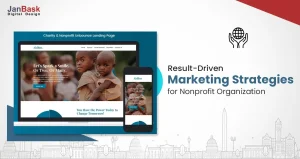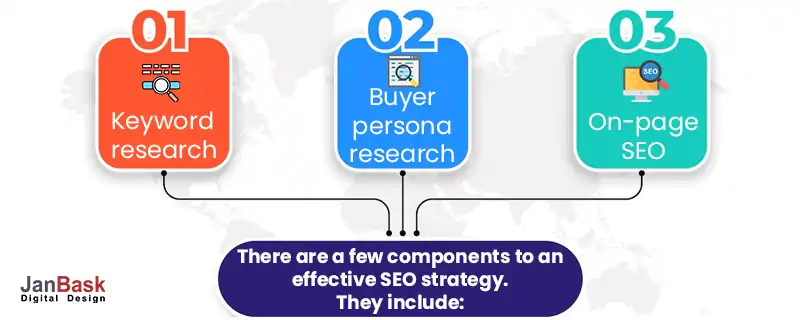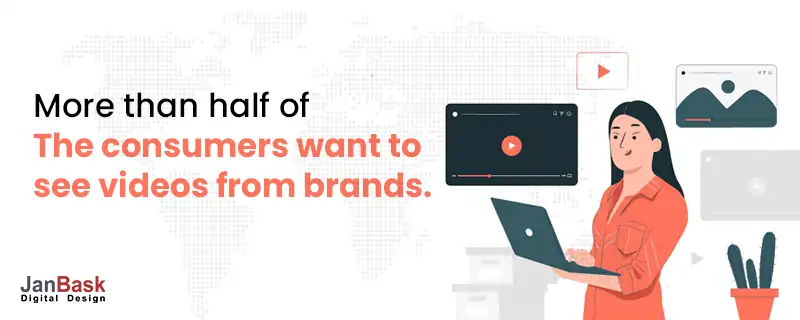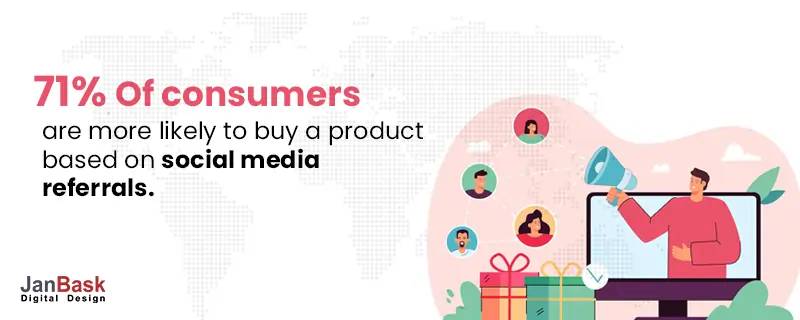
Regardless of how long your small business has been around or how recently it was founded, finding the most effective marketing methods is essential. Customers conduct nearly all their research online, so it's essential to meet them where they spend the most time.
However, marketing a small business in the digital world is not easy. There are a lot of moving parts when it comes to marketing your business, so it's understandable if you're feeling a little overwhelmed.
In the end, marketing attracts customers, and customers generate profit. However, marketing is more than just disseminating your company's name to the general public.
A marketing plan lays out exactly how you intend to reach your target audience by implementing your marketing strategy in the most efficient manner possible.
When promoting a small business, it's important to identify and concentrate on the most effective methods. These small business marketing suggestions will get the creative juices flowing in your company's marketing department.
As a small business with a limited budget, it can be difficult to come up with small business marketing ideas while balancing marketing costs against the costs of actually running a business. It's no wonder that so many small businesses struggle to get noticed with advertising costs as high as they are today.
As it turns out, advertising is no longer the best method for generating new customers. Today, on average, a person sees around 5,000 advertisements per day, which is more than twice as many as in the 1980s. As a result, more than 250 million people now use ad blockers. In the absence of advertising, how do you build a customer base?
The smallest of businesses can benefit from a well-planned and executed small business marketing strategy that keeps the branding and sales wheel turning.
50% of small businesses have no digital marketing strategy at all.
In many cases, small businesses have to make do with a meager advertising budget. As a result, gaining recognition in a local community can be difficult. Therefore by increasing brand awareness and building a pipeline of qualified leads, you can increase your local customer base.
First, you need to lay the groundwork to channel marketing strategies for small business. Before you begin, consider the following factors:
If you are unsure how to proceed, take the help of small business marketing services.
Developing a marketing strategy for a small business doesn't require any special ingredients. But the marketing ideas for small business listed below can help you make a high return on their investment and even reclaim some of their valuable time.
Finding the right combination may take some trial and error, but investing time and money into your marketing for small business will pay off in terms of increased sales and improved brand recognition.
Anyone can be your customer, but that's a big mistake to make. As a small business, you'll benefit the most from specializing in a particular market niche. And in order to target a specific market, you need to know their pains, problems, triggers, and priorities.
What compelled them to make a purchase in the first place? If they succeed, what will it look like? In order to effectively communicate your solution, you need to know these things.
Think about who you already work with and who you'd like to work with in the future. Creating a buyer persona is the first step in the process of understanding your ideal customer.
If you and your competitors have nothing in common, there is no reason for a buyer to choose you over them. Your value proposition is what sets you apart from your competitors and convinces your customers that you're the best option for them.
What distinguishes you from your competitors? This makes a strong case for why you should do this.
As a marketer, you may have noticed that there are a ton of different avenues you can take in the field. It's easy to get carried away and build a complex machine in the hopes of making sure you've covered all your bases.
Instead, focus on the areas that will have the greatest impact. Is there an area of your marketing that you're overlooking? Achieve that one key area's performance goal by focusing your resources on those activities and tactics. When you've made significant progress toward a single goal, you can expand your efforts or shift your focus to other projects.
The sooner you can see a return on your investment, the better. This will help you gain momentum and cash flow to invest in larger projects, long-term strategies, and long-term growth models. For short-term ROI, paid ads may be the best option if you have evidence that people are searching for your product or service on Google with the intention of making a purchase.
Observe and learn from the results of your experiments as soon as you've got your initiatives up and running. You'll be able to see what's working and what isn't. The more you grow, the more important it is to focus on proven revenue-generating strategies.
New customers cost, on average, five times more to acquire than to close a customer. This means that even after they've purchased something, you shouldn't stop marketing to them.
Find ways to encourage customers to buy from you again, upsell them, and cross-sell them. Customers who have already purchased from you know, like, and trust you because of their prior transactions with you. Your customers are more likely to do business with you again if you have given them a positive experience.
When it comes to free promotional tools, it's important to keep in mind that if you have a limited goal and scope, there's no need to spend on it. Only invest in paid tools if they will have a significant impact on your current operations or performance.
One of the most valuable assets you can build for your small business is a well-designed website. This is the place where you can tell a potential customer who you are, what you offer, where you are, and how to contact you.
Like other platforms, it is a channel that you will always own, unlike others that may change policies or go out of style, and it has the ability to generate both organic and paid traffic.
For those customers who haven't yet made a purchase, blogging is an excellent way to generate organic traffic. In addition, it can help you build trust and authority in your field. Even if you only post once a week, your website's online visibility will improve, and your potential customers will learn more about why they should put their faith in your business.
A call-to-action for visitors to subscribe to your blog and receive emails can be added to your posts as soon as you begin writing. A great way to start collecting leads and giving potential customers a way to get information if they aren't ready to buy from you yet is through a lead generation form.
While social media may appear to be merely a place for people to meet and socialize, it is actually a potent tool for advancing a company's goals. As your domain authority rises, so do your search engine rankings and your ability to interact with potential customers via social media.
Having up-to-date social media accounts is essential for any business to be found and engage with potential customers. You can use these social media platforms to find new clients by signing up for Twitter, Facebook, Instagram, and Pinterest (if applicable).
Make sure to respond to customer or follower questions via post comments or direct messages once you've established yourself on your chosen platforms. This will make your company appear more responsive and trustworthy.
Short-term investments are better for a small business than long-term investments, which take time to build organic traffic. For short-term wins, pay-to-play tactics targeting high intent buyers are ideal.
Using Google Ads is a great idea if you know your target market is actively looking for a product or service like yours. Ads on social media might be an option if your posts aren't being seen. Despite the fact that social media users are less likely to make a purchase, you can still gain their attention by using highly targeted advertising and a large number of impressions.
Just because you've converted website traffic into leads doesn't mean those leads are ready to buy yet. It's critical to keep your product in the forefront of their minds and move them closer to making a purchase. Email marketing is an essential part of your overall marketing strategy.

In order to reach out to both new and existing customers, this approach is a simple, cost-free method of communication. You'll want to share your new content and landing pages with those customers who have shown an interest in learning more about your offering.
In order to keep your prospects informed and engaged, you must be careful not to send too many emails to those who have signed up.
Email marketing is most effective when emails are sent to specific recipients who have expressed an interest in receiving them. CRM systems or customer databases are the first step in this process. You can use your CRM to keep track of customer interactions and identify sales opportunities more effectively by storing information about your leads, prospects, and customers.
Customer delight has a significant impact on your business, especially when it comes to repeat purchases and word of mouth. Customers who have a positive experience with your company are more likely to write reviews, provide testimonials, and recommend you to others.
You will appear more professional and entice new clients if your company has a consistent brand identity.
“What other people say about you when you're not there is your brand,” according to Jeff Bezos, the CEO of Amazon. In other words, your brand is what people think and feel when they hear your company's name being mentioned. You can think of it as a combination of your brand name, logo, aesthetic, and the design of all of your assets.
In your mind, how do you picture someone looking for your product or service? What are they struggling with? What do they do for work? In order to create an optimized website for your ideal customer, you need to have an answer to these questions while creating a buyer persona.
By creating a buyer persona, you can learn more about your target customer and figure out what they are searching for so that you can incorporate those terms into your website.
Starting with a color scheme is a great way for the creative juices to begin flowing. Color palettes can be created from scratch or selected from a library of pre-made or custom-made options.
Working with a small business marketing agency can provide you with a better understanding of your small business and connect you with a designer who can change and update your brand assets as your business grows.
A number of free tools and services are available to assist you if you've never built a website before and aren't familiar with the technical aspects. Install Google Analytics to easily track who is looking at your site.
Using small business marketing firms that specialize in web design is an option if you don't have the technical expertise to build your own website. SEO (Search Engine Optimization) is an excellent option for businesses that already have a website but need it updated and reworked for better Google rankings.
There are numerous variables at play when it comes to determining which sites or pages appear at the top of the Google results page. Having relevant keywords, their placement on your site, the length of your content, high-quality content, how fast your page loads, and how often you post content are some of Google's top factors.
Use SEO, or search engine optimization, to improve your Google ranking. SEO is a method for increasing the visibility of your website in search engine results (SERPs). People searching for solutions to their problems via search engines like Google, Yahoo!, and Bing will see your website more frequently as a result of this. What it boils down to is making sure your website and blog posts are in the best shape possible for search engines to find them.

You can learn a lot about your target market's online search habits and preferences by focusing on these three key areas, and then use that knowledge to better position your company for success.
Buyer persona research is carried out in conjunction with keyword research. It is possible to use the personas you've created to search for the best keywords for your brand and then search for related keywords for your target audience.
After that, you can begin working on your website's on-page SEO strategy. The meta description, page titles, and H1 tags are all places where you want to use those keywords correctly on your website.
Because more than 50% of Google searches are performed on mobile devices, it's critical that a website be simple to use on a smartphone. Search engines like Google will give you a higher ranking if you have a mobile site, so it's a win-win situation.

It is becoming more and more common for social media apps like Facebook and Instagram to use visual layouts. In order to stay on top of these trends, you should produce some marketing videos.
Facebook and Google's business features are the most important social media accounts for small businesses. A high number of positive reviews boosts your online reputation and increases your search engine rankings. You can upload images and a description of your company. Also, add your working hours and your location to gain authenticity.
You want your landing pages to entice customers because they have a higher chance of converting them. Using a landing page, you can offer your potential customers a freebie in exchange for their email addresses. When they receive the resource, they might be even more pleased by your company and more interested in buying the full product.
Including a coupon in your marketing emails is a great way to get your recipients' attention and increase sales. After receiving a discount on a product or service, they may also be more willing to pay the full price for it. Offer a free trial of your subscription service to potential customers so they can see if they like it.
A webinar is a short online course that you host for potential customers. You can give advice and answer questions about a subject your brand knows a lot about in 30 to 60 minutes. This approach can help you establish your authority in your field while also providing you with new business opportunities.
If you're working hard on SEO, but are still looking for an extra boost, consider PPC advertising. Use Google AdWords to show up higher and as a sponsored listing in search results with this SEO strategy. Make sure your landing page is optimized before you start PPC campaigns.
In your area, do you know anyone who is considered an expert in the field in which your company operates? Try to get in touch with them and see if they'd be willing to post a review of your product or service on social media if you can. This will bring your product to the attention of their followers. Because an expert is endorsing your product, your followers may have a higher level of trust in it.
Is there a business in your neighborhood that doesn't compete directly with yours but caters to a similar demographic? For example, collaborate on a co branded social media post, email, or blog post with them. You'll be promoting your partnering company, but you'll also be able to connect with their followers.
To promote your product or service, you will need to create a promotional plan that aligns with the customer's journey. Consider what content will attract, engage, and delight your potential customers and how you will turn them into a client.
On social media or on a review site, a satisfied customer's endorsement of your product or service increases its value. Word-of-mouth still has a significant impact on purchasing decisions, even in the age of social media. It's possible that someone who sees a friend's Facebook post about your business or an Instagram photo of a meal from your restaurant is more likely to visit.

You should encourage your customers to write reviews on Google or social media if they've had a positive experience with your product.
A solid hypothesis or question should guide your experimentation with any new marketing strategy. In this way, you will be able to stay focused on the end goal and avoid the temptation to chase the next big thing. Also, think about what you'll do if your results are good or bad. An experiment that succeeds could put you ahead of the competition, and being seen as an industry thought leader never hurts.
When you treat your employees well and encourage them to become brand advocates, you can harness the power of their networks. What better way to get the word out about your company than to use the voices and social networks of your employees? Organize a "friends and family" discount sale every now and then to keep your customers coming back for more.
One of the best ways to market a small business is to utilize what you've already published. Try repurposing your best content for multiple platforms! Video-record a webinar that was a success. Create an ebook out of a collection of related blog posts or other content from your website and promote it via site pop-ups or email marketing.

Small businesses can benefit from attending trade shows and industry conferences. These conferences bring together business leaders from a wide range of fields who are looking for new ways to market their companies and succeed. It's also a great way to meet like-minded business professionals and expand your network.
It's a smart and cost-effective marketing strategy to run a social media contest or giveaway. Even though you may need to pay for a prize, you will get many more participants and new leads as a result, making the investment worthwhile. You don't necessarily need a huge prize to get people to participate in your event.
It's important to remember that there are many different types of social media contests out there, but the main idea is to require registrants who sign up to like, follow, or tag your business or tag someone else on your post to get your name out there and introduce potential clients to you.
Get a bunch of eye-catching business cards and hand them out to everyone you meet. It is only proper that a business card be exchanged during each handshake. Even if it's just a quick glance at a business card, the more exposure your company receives, the better.
The power of infographics as a marketing tool cannot be overstated. Because they're so visually appealing, they're an excellent way to increase referral traffic and links. One of the best ways to market a small business is by obtaining the services of an infographic designer who can turn your visualization into reality.
The road to establishing your online presence is likely a long one, but every step you take will have a significant impact on the success of your company.
You should consider some of the top 40 marketing tips for small business we shared.
Social media posts with pay-per-click ads can have an immediate impact on traffic generation, whereas blogging can take a few months to get going. If you're still unsure of which direction is best for your business, hire a small business marketing company to brainstorm your ideas.
L
Nice insights on marketing.
M
I totally agree. Freebies are a good way to market your small business.
H
Instagram has served as a good channel for monetizing small businesses. Your thoughts?
H
I would like to share my personal experience. Instagram ads and Facebook ads have helped me a lot to get followers and leads.
J
What about LinkedIn marketing? Can you tell me more about it?